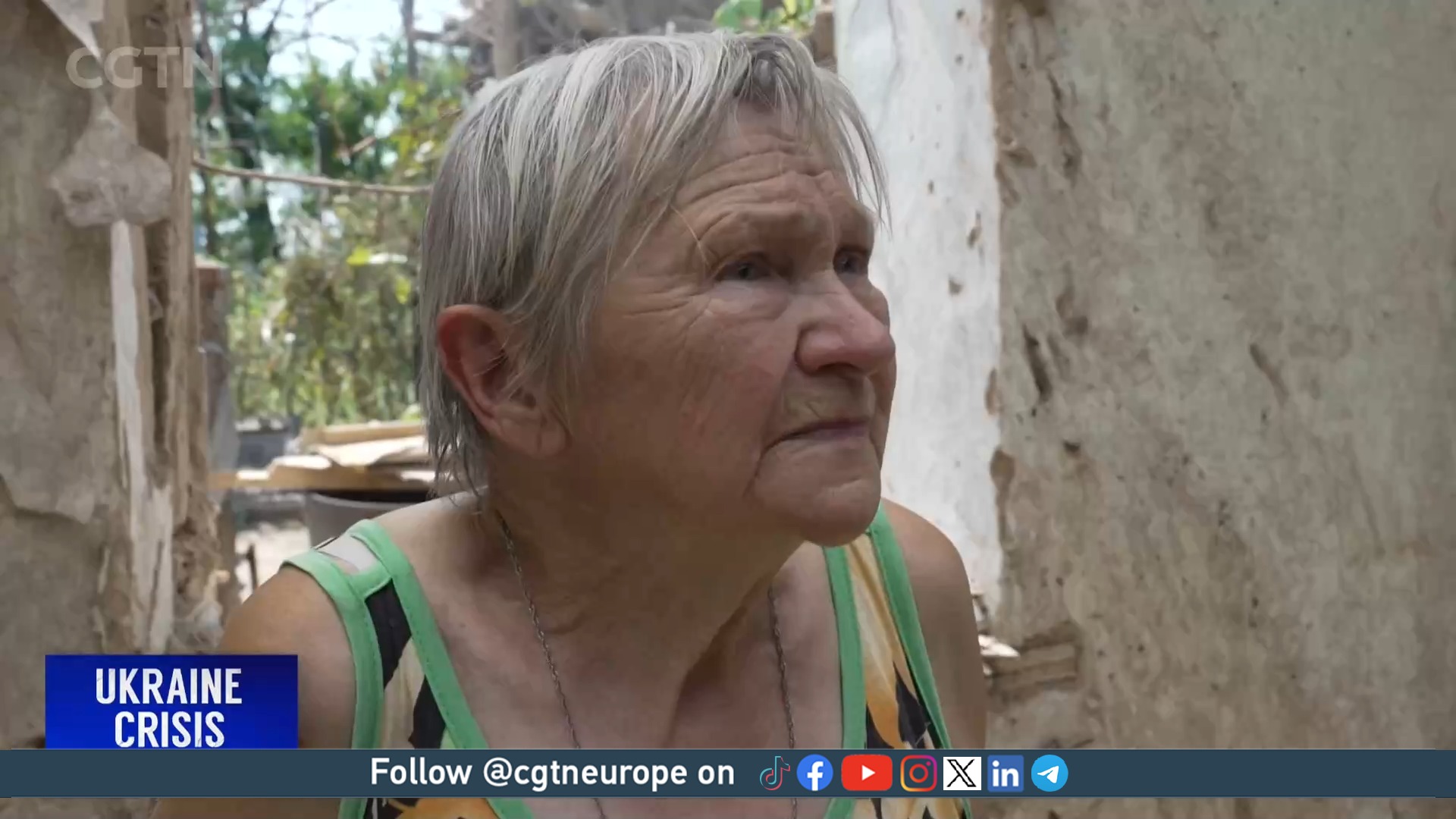02:49

Europe's largest nuclear power plant is on a frontline between Ukraine and Russian controlled territory. Russian soldiers regularly shell across the river towards the city of Nikopol.
At one time the Zaporizhzhia nuclear and thermal plants produced a fifth of Ukraine's electricity, but now all six reactors have been shut down. Despite this, there are fears it could be bombed, while Nikopol and nearby towns suffer from artillery fire most days.
Due to its proximity to the nuclear site, people who live in this neighborhood are often targeted. The river level has dropped significantly since the Kakhovka dam was destroyed in June, with consequences for the region's water supply.
Unlike any other city in Ukraine, Nikopol faces two serious threats. Firstly, potential nuclear fallout from the Zaporizhzhya nuclear plant on the other side, barely nine kilometers away, should there be a direct hit. Secondly, daily shelling from Russian soldiers stationed nearby.

Luibov Riabka shows CGTN around her ruined home. /CGTN
Luibov Riabka shows CGTN around her ruined home. /CGTN
Two weeks ago Luibov Riabka's house was almost destroyed by a bomb. As bombs rained down nearby a worried neighbor came to her house and asked how she was.
Riabka told me: "I said 'everything is fine.' She brought a boy and asked to take him to the basement because he was scared. As soon as I got out of the basement I got to her, I heard a deafening explosion, like a shot, and I just said, 'Marusya, let's run away.'"
But it was too late.
"We didn't have time, we took two steps and the whole house exploded. We were knocked over by the blast wave. We fell... They lifted me up and I opened my eyes and the house was gone and everything was burning."
A stunned Riabka showed us the damage and said she is lucky to be alive. She fears Russian shelling more than a possible blast at the nuclear power plant across the river.
Her family depends on growing fruits and vegetables in the garden. One of her daughters, Iryna Blahodurova, lives nearby, and is also terrified.
"What are we worried about? Everything," she told me. "First of all, they're shooting, they're firing every day. And secondly, they say they'll blow up everything, and what happened with the Kakhovka dam will happen here too. It's very scary."

Riabka's daughter Natalia traveled 850km to her mother's home as soon as she heard the news of the explosion. /CGTN
Riabka's daughter Natalia traveled 850km to her mother's home as soon as she heard the news of the explosion. /CGTN
READ MORE:
From the frontline: The Sisyphean task facing Kherson's mine detectors
Inside Kherson – a shattered city battling flood damage, landmines and bullets
Kyiv struck by 'biggest air strike' in months
Constant danger
Another sister, Natalia, lives 850 kilometers away in west Ukraine, but came as soon as she heard of the attack.
She said: "I came here after the explosion. We just drove here urgently to help dismantle it all (the house), to see it, maybe to take my grandmother to my place across the Kakhovka Sea, which is no longer there and is already destroyed."
Natalia is worried for her mother. "There is a nuclear power plant that is constantly a danger to local residents," she told me. "We have been warned about the evacuation and we have some pills so we know where to go and what to do, but this is all because of the war with Russia. Russia is constantly shelling us, burning one house and then another."

The Interpipe Niko Tube factory continues to employ 2,000 workers. CGTN
The Interpipe Niko Tube factory continues to employ 2,000 workers. CGTN
Working around the clock
More than half the pre-war population of Nikopol have left. But life, and business, does continue. I visited the Interpipe Niko Tube factory that manufactures metal pipes. It's lost almost a third of its workforce but still retains two thousand employees.
The factory staff are working around the clock, despite all the dangers and the uncertainty of being able to export its steel oil, gas and water pipes to the rest of the world.
Production director Yevgeny Dmetrinko said: "We don't have any way to supply our goods around the sea, because Russian troops blockade this area. Our logistics guys company (have to) try to find another way to supply pipes to the European market, American market and Middle East market."
Interpipe is a big employer in Nikopol and helps to sustain hundreds of families. Without this work, far more of the city's population would likely move away.
Subscribe to Storyboard: A weekly newsletter bringing you the best of CGTN every Friday